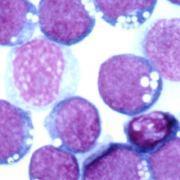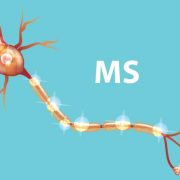Fatty acid may help combat multiple sclerosis
The abnormal immune system response that causes multiple sclerosis (MS) by attacking and damaging the central nervous system can be triggered by the lack of a specific fatty acid in fat tissue, according to a new Yale study. The finding suggests that dietary change might help treat some people with the autoimmune disease.
The study was published Jan. 19 in The Journal of Clinical Investigation.
Fat tissue in patients diagnosed with MS lack normal levels of oleic acid, a monounsaturated fatty acid found at high levels in, for instance, cooking oils, meats (beef, chicken, and pork), cheese, nuts, sunflower seeds, eggs, pasta, milk, olives, and avocados, according to the study.
This lack of oleic acids leads to a loss of the metabolic sensors that activate T cells, that mediate the immune system’s response to infectious disease, the Yale team found. Without the suppressing effects of these regulatory T cells, the immune system can attack healthy central nervous system cells and cause the vision loss, pain, lack of coordination and other debilitating symptoms of MS.
When researchers introduced oleic acids into the fatty tissue of MS patients in laboratory experiments, levels of regulatory T cells increased, they found.
Release date: 19 January 2021
Source: Yale University









